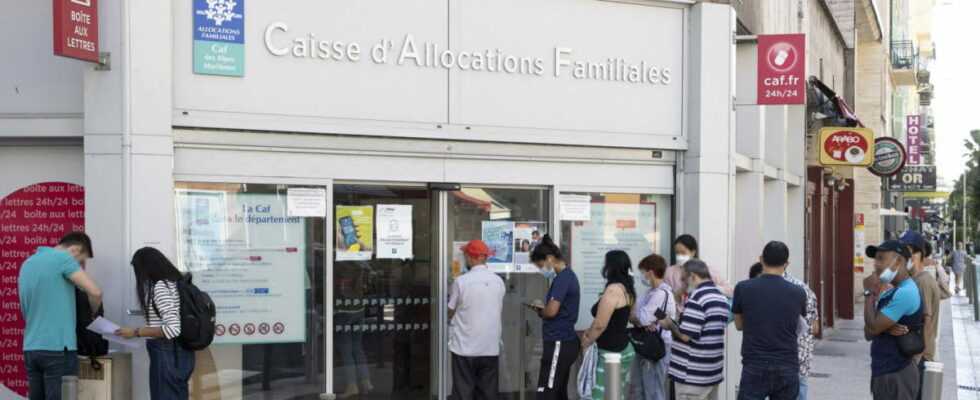“I submitted a housing benefit file at the end of January and I still have no news”: like Emma, a 27-year-old journalist who has been waiting since moving, some CAF beneficiaries are slow to receive their services.
The associations refer to delays in the payments of certain Family Allowance Funds (CAF), responsible for Active Solidarity Income (RSA), Allowance for Disabled Adults (AAH), housing allowances (APL) or family allowances. The CAF has also recently been charged with acting as an intermediary in the payment of alimony.
“CAF has been behind in processing files for about eighteen months, but it is rather improving,” says general manager Nicolas Grivel. “There were difficulties linked to the implementation at the beginning of 2021 of the reform of housing aid” which allows their calculation from the current income of the beneficiary and no longer those dating back two years. “It caused significant delays,” he explains.
Average time: three weeks
“The average time for all the services managed by the CAF, and in particular the personalized housing allowances (APL), is 17 days and is being reduced to 16 working days”, he said. . That is to say about three weeks. “We give priority to social minima, such as the RSA and the AAH, where the response is given in less than a fortnight. »
But many recipients report delays, particularly when moving house or changing family circumstances.
Delays that vary from fund to fund
“Delays vary from fund to fund. They are generally due to computer anomalies which have persisted since the reform of the APL, but also to staff reductions”, affirms Frédéric Neau, deputy secretary of the federal section FO of social organizations, according to which “2,100 deletions are planned permanent contracts over the period 2018-22 for a total of 36,000 agents”. “To make up for the delays, the reception of the public is closed in certain boxes one day or one afternoon per week”, he adds.
Nolwenn, 24, has not touched his APL since moving. “I have been trying to call for seven months: sometimes I am told that my file is not visible when the agents connect to check, other times I am told that they see it but that I have to wait. »
Telephone or video meetings between users and agents have developed, as well as exchanges by email, avoiding policyholders having to go to the counters, explained Mr. Grivel. This facilitates communication with the administration for the greatest number, but complicates the procedures for others: 17% of the population is suffering from illiteracy according to INSEE.
Controls have been tightened to prevent fraud
“People in precarious situations are not very comfortable with administrative procedures, especially when they don’t speak French well. And do not have a computer, printer, photocopier necessary to complete their file,” explains Daniel Verger, head of Studies-Research-Opinion at Secours Catholique. “Precarious people find themselves in a complicated situation when they have to wait a month to get an appointment,” adds Bruno Rakedjian, national access to fundamental rights manager at ATD-Quart Monde.
According to the associations, controls have been tightened to prevent fraud, causing suspension of payments if the file contains inconsistencies. “Simple files, for which we have all the documents, are processed quickly,” explains Mr. Grivel. But some complicated files are several months late, because they “require more time, require analysis, exchanges, interaction”, he notes. “We are in a rather positive phase of improving the processing time,” he says.
If there are delays in opening cases, benefits are paid regularly once the case is in order, according to Grivel. If the examination of the file is late, the payments will be retroactive.
The “at source” payment project mentioned by Emmanuel Macron during the electoral campaign would make it possible to pay everyone the aid to which they are entitled, without having to multiply the steps. And without giving it up out of weariness or ignorance.
